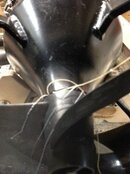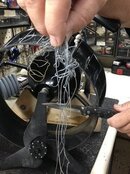Some of our tech dives in Northern California are on granite rock formations that would qualify as pinnacles under that definition. You need a scooter to deal with the current but there's nothing particularly dangerous or anxiety-inducing about the environment. Those offshore sites are often where we have the best visibility and most abundant marine life.When I first read "pinnacle dives" I interpreted the phrase to mean diving at the edge of one's ability. i.e. you shouldn't solo dive at the edge of your ability. However, upon googling I see Pinnacle Dives are those which:
...explore underwater rock formations that rise vertically from the seabed, creating a "pinnacle shape", often with challenging features like narrow crevices, overhangs, and strong currents, typically requiring a higher level of diving skill and experience compared to a standard reef dive.
I have only dove freshwater quarries and Florida caverns. Having no experience with current, it sounds like a dangerous, anxiety-inducing environment to me.
I wouldn't recommend solo diving there (or anywhere). For one thing if your scooter fails it's nice to have a buddy who can tow you back near the top of the pinnacle before starting a drifting ascent (in a serious emergency you can ascend from anywhere but it's safer to send the team's marker buoy up where the boat crew is expecting to see it).







